If all you know about Uruguay is Luis Suarez, the (in)famous footballer, then this article is for you. If you do not even know who Luis Suarez is, then hopefully it is still for you.Over the course of 2017, we’ll write about a range of specific legal areas in Uruguay. But in this first article, we’ll take the opportunity to provide a general introduction to Uruguay itself.
We hope this series of articles will be of interest to anybody who is looking at South America to start up a business, is looking at investment opportunities in general, or is seeking to start a new life abroad.
While many have found opportunities for success in Uruguay, it will not suit everybody. The hope is these articles will encourage you to check it out further. And perhaps for others, it will help them realize that this is not the country for them.
We know in some places, Uruguay is referred to as the «Switzerland of South America.» But we would say at the outset that Uruguay is nothing at all like Switzerland. We do however have some good points that even Switzerland does not!
Geography:
So, to answer a common first question: where is Uruguay? We are a small country between Brasil and Argentina on the Atlantic coast of South America.
However, «small» is a relative term. Uruguay’s land area is the same size as the UK. But instead of having a population of around 65 million, we have only 3 million. That means there is a lot of open space and not so many traffic jams.
The climate is also less difficult than the UK. Summers average between 25-30C (77-86F). Winter temperatures range between 8-12C (48-55F).
In Uruguay, we do not get earthquakes, hurricanes or tsunamis. It’s a peaceful food-producing country far away from the world’s current hot spots. The biggest danger to your health here is bad driving.
The countryside consists of mostly fertile farmland and rolling hills.
The coastline is a string of sandy beaches all the way up to the border with Brasil. During the summer, these beaches and their seaside resorts are very popular with Argentinians and Brasilians – and are becoming increasingly popular with Europeans.
Political system and the economy:
Uruguay has a long history of democracy, which sets it apart from most other countries in the region. It has also always been stable economically and never defaulted on its government debt – even when the IMF advised us to do so.
There really is a separation of powers here between the Executive, the Legislature, and the Judiciary.
We are confident in saying as well that there is no discrimination in the treatment of foreigners – either in law or, more importantly, in practice.
That doesn’t mean everything is efficient. This is still South America. But it does mean that if you get a poor service, you can be confident that a native Uruguayan will be receiving the same poor service!
As to the politics, there are elections every five years for a President, and a two-house legislature.
The present government is a socialist-oriented one, called the «Frente Amplio», but whilst it is left wing, it is not loony left. The country has done rather well in the 12 years since they first came to power.
The current President is Dr. Tabare Vazquez, whose main claim to fame is that he is a practicing oncologist.
The previous president, Pepe Mujica, was well known around the world as being the «poorest» President because he gave away a large part of his presidential salary. You can agree or disagree with his policies, but he certainly does not appear to have used the role for his personal gain.
Pres. Dr Tabare Vazquez – Ex-President Jose (Pepe) Mujica
Education:
There is free public education up to 18, although standards in the public sector have unfortunately fallen. As a result Montevideo is full of private schools, many of them bilingual. Most these schools teach English, but there are also German, Italian and French schools. There is also a free public University (UDELAR) and several private ones.
Healthcare:
Likewise there is a free public healthcare system, but whilst the standard of healthcare of such is good, the accompanying services are very poor. Most people opt for private insurance, using one of the several schemes available e.g. Blue Cross, or go direct to one of the hospital schemes. Writing as a Brit, I have to say that the best hospital here is without doubt the British Hospital!
Conclusion:
As a conclusion, I would say that the quality of life here is very high. Family is still important – the nuclear society still exists here.
Montevideo itself has over half the population of the country but it is still relatively easy to get around. Most things are just around the corner – shops, banks and even friends.
For a relatively small city there are lots of theatres and special productions of classical music and opera. Finally, if you want more you can just cross over to Buenos Aires in Argentina, which is only 30 minutes by plane or 3 hours by ferry.
So that is a basic introduction to the country itself, which will hopefully give you some insight and will not have put you off already!
Moving on then to the legal regime we will be writing in the following months about the following specific areas: Immigration, Taxes (both corporate and individual), buying real estate and the different sorts of properties available (there are no restrictions on purchases by foreigners), starting a business, using Uruguay as a point of entry for Latin America, labour regulations, banking, wills and estate planning, duty free zones and some analysis of different businesses which have been successful in Uruguay over the last few years.
ESP
Introducción:
Si todo lo que sabe acerca de Uruguay es Luis Suárez, la (in) famoso jugador de fútbol, entonces este artículo es para usted. Si ni siquiera sabe quién es Luis Suárez, es de esperar que todavía es para usted.
En el transcurso de 2017, vamos a escribir sobre una variedad de áreas legales específicas en Uruguay. Pero en este primer artículo, vamos a tener la oportunidad de proporcionar una introducción general al propio Uruguay.
Esperamos que esta serie de artículos será de interés para cualquiera que esté buscando en América del Sur para poner en marcha un negocio, está buscando oportunidades de inversión en general, o está tratando de iniciar una nueva vida en el extranjero.
Mientras que muchos han encontrado oportunidades de éxito en Uruguay, no va a satisfacer a todo el mundo. La esperanza es que estos artículos le animo a verlo más. Y tal vez para otros, que les ayudará a darse cuenta de que este no es el país para ellos.
Sabemos que en algunos lugares, Uruguay se conoce como la «Suiza de América del Sur.» Pero podríamos decir desde el principio que Uruguay no es nada en absoluto como Suiza. sin embargo, tenemos algunos buenos puntos que incluso Suiza no hace!
Geografía:
Por lo tanto, para responder a una primera pregunta común: ¿dónde está Uruguay? Somos un país pequeño entre Brasil y Argentina, en la costa atlántica de América del Sur.
Sin embargo, «pequeña» es un término relativo. la superficie terrestre del Uruguay es del mismo tamaño que el Reino Unido. Pero en lugar de tener una población de alrededor de 65 millones de dólares, sólo tenemos 3 millones. Eso significa que hay una gran cantidad de espacio abierto y no tan muchos atascos de tráfico.
El clima también es menos difícil que el Reino Unido. Summers promedio entre 25-30C (77-86F). Las temperaturas en invierno oscilan entre 8-12C (48-55F).
En Uruguay, no conseguimos terremotos, huracanes o tsunamis. Es un país productor de alimentos tranquila lejos de los puntos calientes del mundo actual. El mayor peligro para su salud aquí es la mala conducción.
El campo consta de colinas onduladas tierras de cultivo y en su mayoría fértiles.
La costa es una cadena de playas de arena todo el camino hasta la frontera con Brasil. Durante el verano, estas playas y sus balnearios son muy populares entre los argentinos y Brasilians – y se están convirtiendo cada vez más popular entre los europeos.
sistema político y la economía:
Uruguay tiene una larga historia de la democracia, lo que lo diferencia de la mayoría de los otros países de la región. También ha sido siempre estable económicamente y nunca de pagar su deuda pública – incluso cuando el FMI nos aconsejó que lo hiciera.
Realmente no hay una separación de poderes aquí entre el Ejecutivo, el Legislativo y el Judicial.
Tenemos confianza en que dice, así que no hay discriminación en el trato de los extranjeros – ya sea en la ley o, más importante aún, en la práctica.
Eso no quiere decir que todo es eficiente. Esto sigue siendo América del Sur. Pero sí significa que si usted recibe un mal servicio, puede estar seguro de que un uruguayo nativo va a recibir el mismo servicio pobre!
En cuanto a la política, hay elecciones cada cinco años por un presidente y un parlamento bicameral.
El gobierno actual es una orientación socialista, llamado el «Frente Amplio», pero al mismo tiempo se deja ala, que no es de locos izquierda. El país ha hecho bastante bien en los 12 años desde que llegó por primera vez al poder.
El presidente actual es el Dr. Tabaré Vázquez, cuyo principal reclamo a la fama es que él es un oncólogo practicante.
El anterior presidente, Pepe Mujica, era bien conocido en todo el mundo como el «más pobre» Presidente porque él entregó una gran parte de su sueldo presidencial. Se puede coincidir o no con sus políticas, pero desde luego no parece haber utilizado el papel para su beneficio personal.
Educación:
Hay una educación pública gratuita hasta 18, aunque los estándares en el sector público por desgracia han caído. Como resultado Montevideo está llena de centros privados, muchos de ellos bilingües. La mayoría de estas escuelas enseñan Inglés, pero también son el alemán, italiano y escuelas francesas. También hay un público gratuito Universidad (UDELAR) y varios privados.
Cuidado de la salud:
Del mismo modo existe un sistema de salud pública gratuita, pero al mismo tiempo la calidad de la asistencia sanitaria de los tales es buena, los servicios que se acompañan son muy pobres. La mayoría de las personas optan por un seguro privado, usando uno de los varios esquemas disponibles, por ejemplo Cruz Azul, o ir directamente a uno de los esquemas de hospital. La escritura como un británico, tengo que decir que el mejor hospital aquí es sin duda el Hospital Británico!
Conclusión:
Como conclusión, yo diría que la calidad de vida aquí es muy alto. La familia sigue siendo importante – todavía existe la Sociedad Nuclear aquí.
Montevideo en sí tiene más de la mitad de la población del país, pero todavía es relativamente fácil de recorrer. La mayoría de las cosas están a la vuelta de la esquina – tiendas, bancos e incluso amigos.
Para una ciudad relativamente pequeña hay un montón de teatros y producciones especiales de la música clásica y la ópera. Por último, si quieres más que sólo puede cruzar a Buenos Aires en Argentina, que está a sólo 30 minutos en avión o 3 horas en ferry.
Así que es una introducción básica al país en sí, que se espera que le dará una idea y no tendrá que poner fuera ya!
Pasando luego al régimen jurídico Vamos a escribir en los próximos meses sobre las siguientes áreas específicas: inmigración, impuestos (tanto corporativos e individuales), la compra de bienes raíces y los diferentes tipos de propiedades disponibles (no hay restricciones en las compras por extranjeros ), iniciar un negocio, utilizando Uruguay como un punto de entrada para América Latina, las normas laborales, la banca, los testamentos y administración patrimonial, las zonas libres de impuestos y algunos análisis de las diferentes empresas que han tenido éxito en Uruguay en los últimos años.
Fuente: mondaq.com


